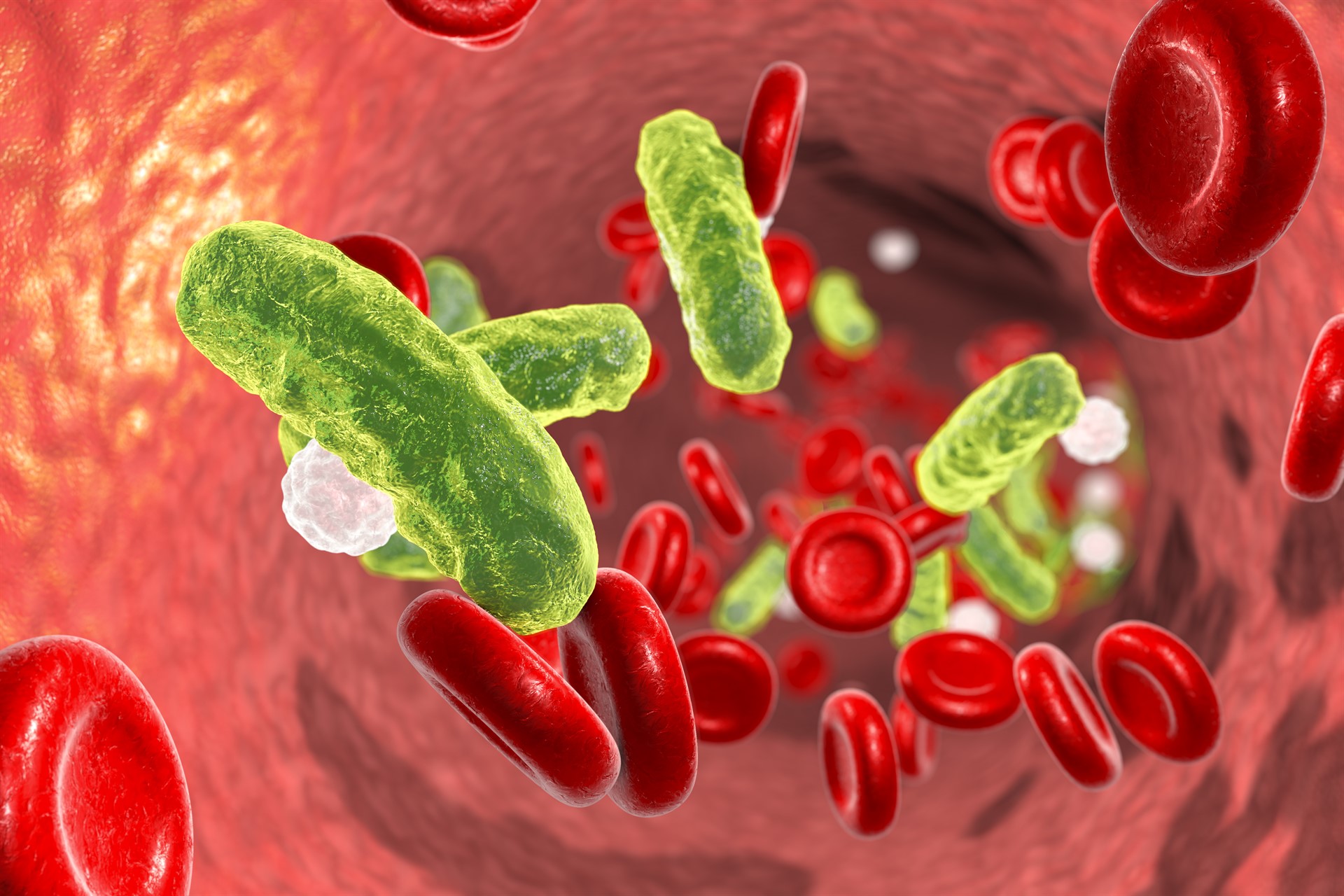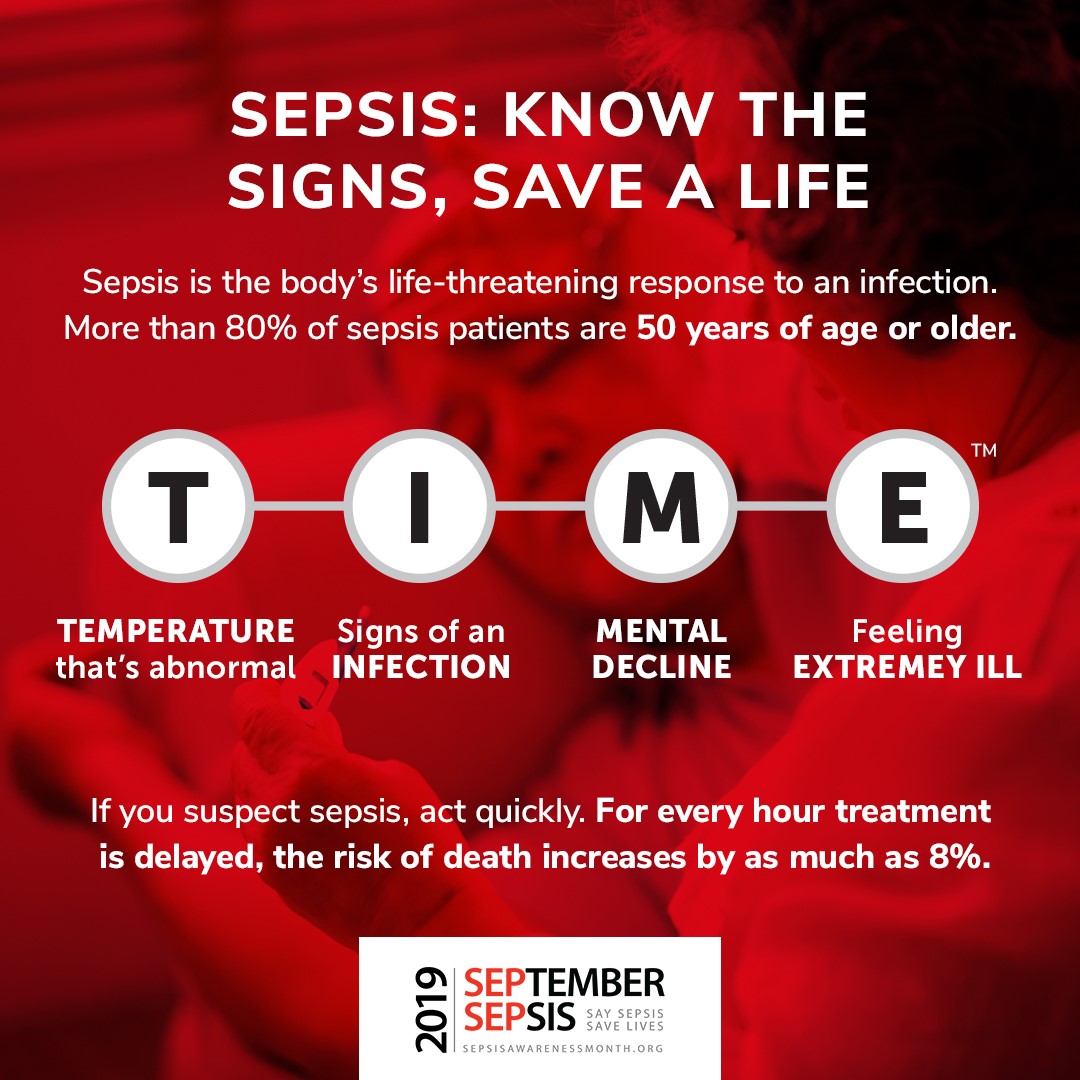Sepsis Awareness Month

Kristin, a 48 year old female, was about to embark on a trip to celebrate her 28th anniversary when she became ill with another kidney stone attack. She was upset about the interruption in their travel plans but was told to go home and wait for it to pass. She went home feeling completely terrible, slept on and off for next 24 hours and awoke early the next morning with extreme shivering and chills. Her husband got her into their truck for the 20 minute ride to the hospital where she was seen in the ED and found to have a temperature of 104. She had sepsis from a bladder infection caused by e-coli. She spent 3 days in ICU and was discharged 6 days later. She did not feel that she was back to her normal self even two weeks after being in the hospital and beyond that. She was depressed, filled with anxiety, and wasn’t able to complete normal tasks. She yearns to have her old life back.
- Sepsis is a severe reaction to an infection that can cause tissue damage, organ failure and death if it is allowed to progress. In recent years, sepsis has become more frequent and more devastating. Sidney Heath Center has seen 31 patients in the past year with sepsis. Delaying treatment can allow the sepsis condition to worsen and cause harm to your body. But with early identification of the issue and treatment, the crisis can be averted.
 The key to identifying sepsis is about T I M E – T is temperature, I is infection, M is mental decline, and E is extremely ill. A combination of these symptoms means you need to seek medical care urgently.
The key to identifying sepsis is about T I M E – T is temperature, I is infection, M is mental decline, and E is extremely ill. A combination of these symptoms means you need to seek medical care urgently.
Sepsis is life-threatening and can affect many different organ systems. When an infection becomes severe, your body sends out chemicals into your blood stream to fight the infection. These chemicals will sometimes turn on the body instead of the infection and trigger a chain reaction that can attack the organs; such as kidneys, lungs, heart, or brain. And this damage can be long lasting.- It is important to seek medical attention if you have an infection, especially if it becomes severe. Symptoms of a severe infection include chills and a fever over 101, rapid breathing rate, and rapid pulse. Infections involving lungs (pneumonia), kidneys (urinary tract infection), skin (cellulitis), and bowel (colitis) are more likely to develop into sepsis than other types of infections.
- Some individuals are more susceptible to sepsis because their immune systems are not as strong. People age 65 and older, cancer patients, children, and patients with chronic illnesses are more likely to develop sepsis if they have an infection. In the U.S., one in three patients who die in a hospital die of sepsis.
- It has been shown that COVID-19 can cause sepsis. A research study from Spokane, WA notes that almost 70% of hospitalized COVID patients have sepsis.
Sepsis can be prevented by avoiding infections. Treat minor wounds carefully, keeping the area clean. If antibiotics are prescribed, take them as instructed. Hand washing is important and also getting recommended vaccines to prevent illness. - September is Sepsis Awareness Month. Being aware of sepsis and seeking early treatment can help you and your family avoid the disastrous condition of sepsis.
